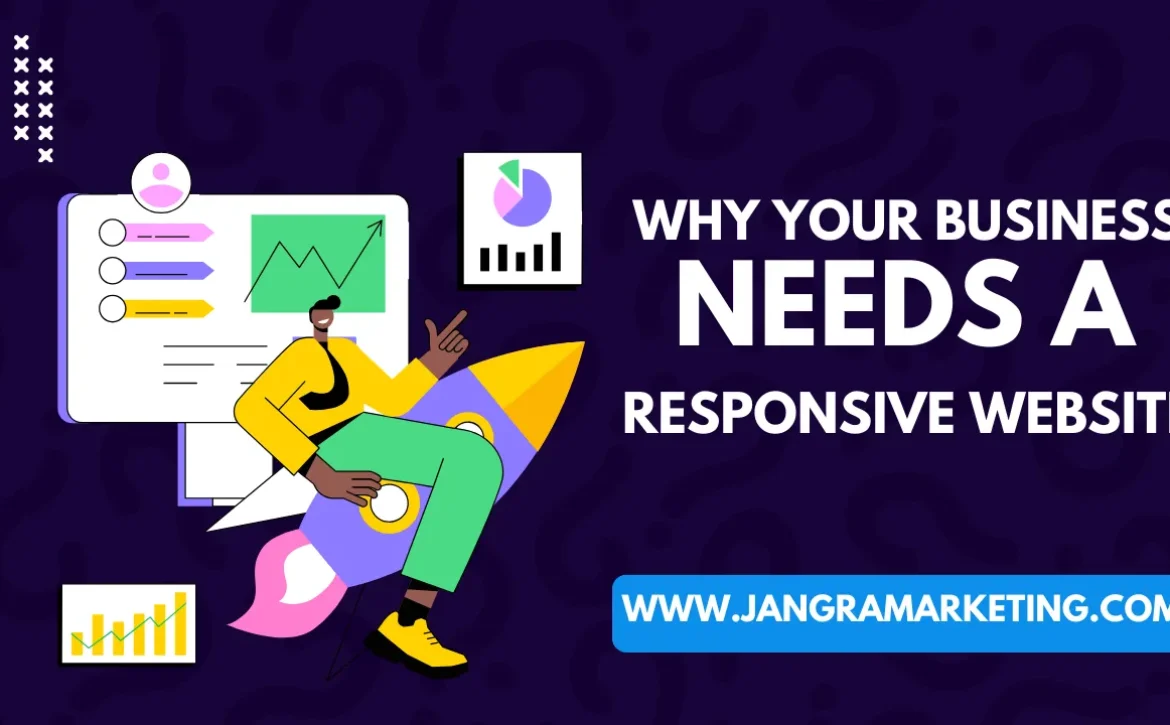Why Your Business Needs a Responsive Website
In the fast-paced digital age, having a robust online presence is vital for any business. One of the key components of this online presence is a responsive website. But what exactly does it mean to have a responsive website, and why is it so crucial for your business? In this blog, we’ll delve into the importance of responsive web design and how it can enhance user experience and boost your SEO efforts.
What is a Responsive Website?
A responsive website is designed to provide an optimal viewing experience across a wide range of devices, from desktop computers to smartphones and tablets. This means the website automatically adjusts its layout and elements to fit the screen size and resolution of the device being used. The goal is to ensure that users have a seamless and enjoyable experience, regardless of the device they use to access your site.
The Importance of a Responsive Website
1. Improved User Experience
Seamless Navigation Across Devices
A responsive website ensures that your visitors can easily navigate your site, whether they are on a desktop, tablet, or smartphone. This is crucial because:
- Consistent Experience: Users enjoy a consistent experience without the need to zoom in or scroll excessively.
- Increased Engagement: A user-friendly site keeps visitors engaged, reducing bounce rates.
- Higher Conversion Rates: Easier navigation and readability can lead to higher conversion rates as users can find what they need quickly and effortlessly.
2. Enhanced SEO Performance
Better Rankings on Search Engines
Google and other search engines prioritize mobile-friendly websites. A responsive design can significantly boost your SEO efforts by:
- Mobile-First Indexing: Google uses mobile-first indexing, meaning it predominantly uses the mobile version of the content for indexing and ranking.
- Reduced Bounce Rate: A responsive website reduces bounce rates as visitors are less likely to leave a site that provides a good user experience.
- Faster Loading Speeds: Responsive websites typically load faster, which is a crucial factor for search engine rankings.
3. Cost-Effective and Easier Maintenance
Simplified Management
Maintaining separate websites for desktop and mobile can be time-consuming and costly. With a responsive website, you streamline your maintenance efforts:
- Single URL: Manage one website and one set of content, which simplifies updates and maintenance.
- Cost Savings: Save money by eliminating the need for multiple versions of your website.
- Consistency: Ensure consistency in design and content across all devices.
4. Increased Mobile Traffic
Capture the Mobile Audience
With the increasing use of smartphones, a significant portion of web traffic comes from mobile devices. A responsive website helps you:
- Reach More Users: Capture a larger audience by providing a mobile-friendly experience.
- Boost Engagement: Mobile users are more likely to engage with a site that looks good and functions well on their devices.
- Stay Competitive: Stay ahead of competitors who may not have optimized their websites for mobile use.
5. Future-Proof Your Website
Adapt to New Devices
Technology is constantly evolving, and new devices with varying screen sizes and resolutions are regularly being introduced. A responsive website ensures that your site:
- Adapts Automatically: Adjusts to new devices without the need for major overhauls.
- Remains Relevant: Stays current with technological advancements, providing a consistent user experience.
How to Make Your Website Responsive
To ensure your website is responsive, consider the following tips:
- Use Fluid Grids: Design layouts that scale proportionally rather than relying on fixed widths.
- Flexible Images: Ensure images resize within their containing elements.
- Media Queries: Utilize CSS media queries to apply different styles based on the device’s characteristics.
- Mobile-First Approach: Design for the smallest screen size first and gradually enhance the design for larger screens.
Conclusion
A responsive website is no longer just an option; it’s a necessity in today’s digital landscape. Providing an optimal user experience, improving your SEO performance, and ensuring your site is future-proof, responsive web design can significantly benefit your business. At Jangra Marketing, we specialize in creating responsive websites that drive engagement and conversions. Contact us today to learn how we can help your business succeed online.


